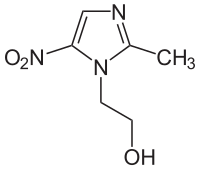
Biofilm forming properties of quinolone resistant Escherichia coli from the broiler production chain and their dynamics in mixed biofilms
Sign Up to like & getrecommendations! Published in 2020 at "BMC Microbiology"
DOI: 10.1186/s12866-020-01730-w
Abstract: Quinolone resistant Escherichia coli (QREC) have been found in samples from Norwegian broiler chicken, despite quinolones not being administered to poultry in Norway. Biofilm production may be one factor contributing to the observed persistence in… read more here.
Keywords: production; broiler; quinolone resistant; biofilm production ... See more keywords

Synergistic interaction of eugenol and antimicrobial drugs in eradication of single and mixed biofilms of Candida albicans and Streptococcus mutans
Sign Up to like & getrecommendations! Published in 2020 at "AMB Express"
DOI: 10.1186/s13568-020-01123-2
Abstract: In vitro eradication of the C. albicans and S. mutans mixed biofilms by eugenol alone and in combination with the antimicrobial drugs. Previously characterized strains of C. albicans (CAJ-01 and CAJ-12) and S. mutans MTCC497… read more here.
Keywords: eradication; eugenol; antimicrobial drugs; albicans mutans ... See more keywords

Decreasing Cell Population of Individual Candida Species Does Not Impair the Virulence of Candida albicans and Candida glabrata Mixed Biofilms
Sign Up to like & getrecommendations! Published in 2019 at "Frontiers in Microbiology"
DOI: 10.3389/fmicb.2019.01600
Abstract: Candida albicans and Candida glabrata are two commonly seen opportunistic fungi in clinical settings and usually co-isolated from the population inflicted with denture stomatitis and oropharyngeal candidiasis. Although C. albicans and C. glabrata mixed biofilm… read more here.
Keywords: albicans candida; virulence; candida; candida albicans ... See more keywords

Effect of Quorum Sensing Molecule Farnesol on Mixed Biofilms of Candida albicans and Staphylococcus aureus
Sign Up to like & getrecommendations! Published in 2023 at "Antibiotics"
DOI: 10.3390/antibiotics12030441
Abstract: The natural bioactive molecule farnesol (FAR) is widely studied mainly for its antibiofilm and antimicrobial properties. In addition, it increases the effectiveness of some antimicrobial substances, which makes it interesting for the development of combined… read more here.
Keywords: molecule farnesol; mixed biofilms; staphylococcus aureus; albicans staphylococcus ... See more keywords

The Bovhyaluronidase Azoximer (Longidaza®) Disrupts Candida albicans and Candida albicans-Bacterial Mixed Biofilms and Increases the Efficacy of Antifungals
Sign Up to like & getrecommendations! Published in 2022 at "Medicina"
DOI: 10.3390/medicina58121710
Abstract: Background and Objectives: Candida albicans causes various diseases ranging from superficial mycoses to life-threatening systemic infections often associated with biofilm formation, including mixed fungal–bacterial consortia. The biofilm matrix protects cells, making Candida extremely resistant to… read more here.
Keywords: bovhyaluronidase azoximer; candida albicans; longidaza disrupts; mixed biofilms ... See more keywords

Antimicrobial and Biofilm-Preventing Activity of l-Borneol Possessing 2(5H)-Furanone Derivative F131 against S. aureus—C. albicans Mixed Cultures
Sign Up to like & getrecommendations! Published in 2022 at "Pathogens"
DOI: 10.3390/pathogens12010026
Abstract: Candida albicans and Staphylococcus aureus are human pathogens that are able to form mixed biofilms on the surface of mucous membranes, implants and catheters. In biofilms, these pathogens have increased resistance to antimicrobials, leading to… read more here.
Keywords: f131; mixed biofilms; albicans mixed; activity ... See more keywords

Inhibition of Mixed Biofilms of Candida albicans and Methicillin-Resistant Staphylococcus aureus by Positively Charged Silver Nanoparticles and Functionalized Silicone Elastomers
Sign Up to like & getrecommendations! Published in 2020 at "Pathogens"
DOI: 10.3390/pathogens9100784
Abstract: Both bacterial and fungal organisms display the ability to form biofilms; however, mixed bacterial/fungal biofilms are particularly difficult to control and eradicate. The opportunistic microbial pathogens Candida albicans and Staphylococcus aureus are among the most… read more here.
Keywords: staphylococcus aureus; silver nanoparticles; mixed biofilms; candida albicans ... See more keywords